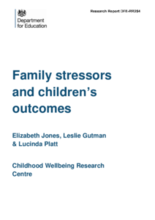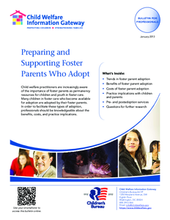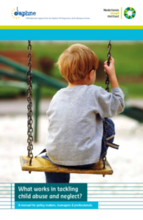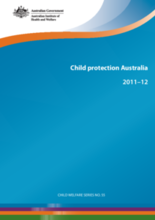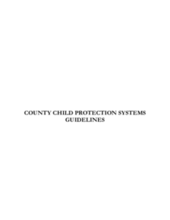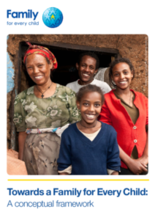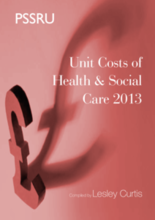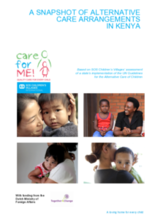Displaying 1291 - 1300 of 1798
This new study from the Childhood Wellbeing Research Centre, an independent research center with funding from the United Kingdom Department for Education, identifies which family stress factors and parental behaviors are associated with positive and negative outcomes for children at the age of 7 and whether stressful life events experienced in childhood are associated with negative outcomes in adolescence.
This newsletter, translated into English, is the first of three issues produced by the “Protecting children of Moldova from family separation, violence, abuse, neglect and exploitation” project, which is implemented by Partnerships for Every Child, the Ministry of Labour, Social Protection and Family of Moldova, and the Ministry of Education of Moldova.
This paper discusses the challenges of reforming the child welfare and protection systems in Hungary and Romania -two countries in transition from socialism to capitalism- and the impact on children, young people, families, and professionals. The focus is on the efforts made to deinstitutionalise children from large institutions, develop local prevention services, and develop alternatives to institutional care.
This document provides an overview of the benefits, costs, and practice implications for adoptions from foster care in the US.
This manual is the main outcome of the European Commission Daphne III programme, Prevent and Combat Child Abuse: What works? Involving regional exchanges and research from five countries (Germany, Hungary, Portugal, Sweden and the Netherlands), this manual brings together knowledge on what works in tackling child abuse. The manual suggests evidence and practice-based prevention and response strategies against child abuse and neglect, including programs and services that have been shown to be successful in strengthening family care.
This document is the 16th annual report on child protection in Australia. The report includes detailed statistical information on child protection services provided on the state and territory level as well as demographic and background information on the children receiving services.
The Child Protection System Guidelines were developed to address the fragmented response to child protection in Kenya and guide actors at the county level to deliver more coordinated and professional services for children and their families.
This document provides a conceptual framework for Family for Every Child, a global network of national civil society organisations working to mobilise knowledge, skills and resources to build a world where every child grows up in a permanent, safe and caring family, and to provide quality alternative care where needed.
This report is a compilation of health and social care costs in the UK for the year 2013, including an article and corresponding information on the costs of residential care for children.
This report presents findings from an assessment of Kenya's implementation of the UN Guidelines for the Alternative Care of Children.

